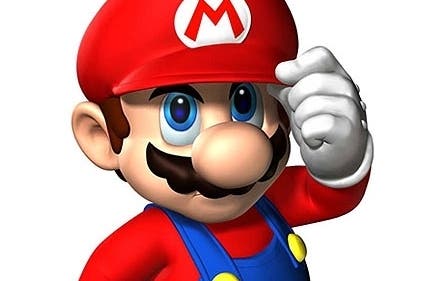Nintendo determined to prevent dedicated gaming consoles from dying out as threat from next-gen and mobile looms
Iwata finds it strange that many think cloud gaming is the future.
Nintendo boss Satoru Iwata has cast doubt on cloud gaming - what many proclaim to be the future of the industry.
He told analysts during an investment question and answer session that he finds the fervour over the internet-powered tech "strange".
With both Microsoft and Sony expected to incorporate cloud gaming into their next generation consoles (Sony recently shelled out $380 million for David Perry's cloud gaming company Gaikai), game streaming looks set to expand its audience.
But Iwata said cloud gaming is held back by the inherent latency that comes with it, with action games in particular seriously affected.
"A cloud is an attempt to process information online on a server, as opposed to doing so on individual machines in the hands of the users," he said.
"What this implies is, since the time to transmit data over an internet connection is never negligible, there is always some latency before you receive the result of your input.
"Of course, there are types of games on which delays have no effect. In such instances, it may perhaps make sense to have an input means as well as the ability to display images at hand and let all the information be processed on a server. On the other hand, for some highly interactive games, action games in particular, the time required to reflect the push of a button on the screen is critical and the frame rate (the number of times a screen can be updated in a given second) determines the fluidity of the movements.
"This means that there are some types of games that can be put on the internet and others that cannot. By the laws of physics, it always takes some time to transmit data, and given the current level of internet technology, there is bound to be some latency during the processes of a server receiving data, producing images instantly and sending them back.
"There are many things that cloud gaming cannot do by design, but this fact has not been communicated well to the public, and I find it strange that many people claim that cloud gaming is the future."
Iwata said the discussion of cloud gaming progresses naturally into the discussion of the future of dedicated gaming platforms and the suggestion they will eventually die out.
It is a belief held by many in the industry. Some think the next generation of consoles will be the last as cloud gaming strengthens its position within TVs and mobile device power increases.
Nintendo takes the opposite view. "Naturally, our stance is that dedicated gaming platforms will not die out and we are determined to create a future where they will not," Iwata said.
Nintendo plans to integrate its software development methods, operating systems and build-in software and software assets for future platforms so they can be used across different gaming machines. If this plan comes off, Nintendo will be able to make more platforms, Iwata said.
Iwata also touched on Nintendo's steadfast view that pushing graphics power is not its aim. The Wii U, Nintendo's first high definition console, has been criticised in some quarters for not offering a significant upgrade on Microsoft and Sony's current generation consoles, and with the next Xbox and PlayStation set to push graphics even further, and the ever-increasing power of PCs ever present, Nintendo's home console tech could be left further behind.
But Iwata is playing a different game. "It is natural that there will be more things that battery-run devices can do thanks to technological advances and game consoles will become more powerful," he admitted. "However, if we try to linearly pursue this direction, software development will become so complicated that we will eventually face a situation where cost recovery becomes a serious issue.
"Therefore we feel that we are nearing a saturation point in terms of simply improving performance or enhancing graphics. What is far more important for the future of video games is whether we can make new propositions in other aspects and create games out of something that people never expected to see in the form of a game."
Game design legend Shigeru Miyamoto chimed in on the debate, saying, "what Nintendo should do this time is create something that is more fun to play on our devices." He pointed to the impressive sales of Animal Crossing: New Leaf in Japan as evidence that this policy can still prove fruitful.
"The sales of Animal Crossing: New Leaf we released last year in Japan have already assured us that, as long as we create software that meets certain demands from the consumers, such as a game title they really want to play by any means and they want to do so without worrying about the battery life of their handheld devices, they will be willing to purchase it," he said.

